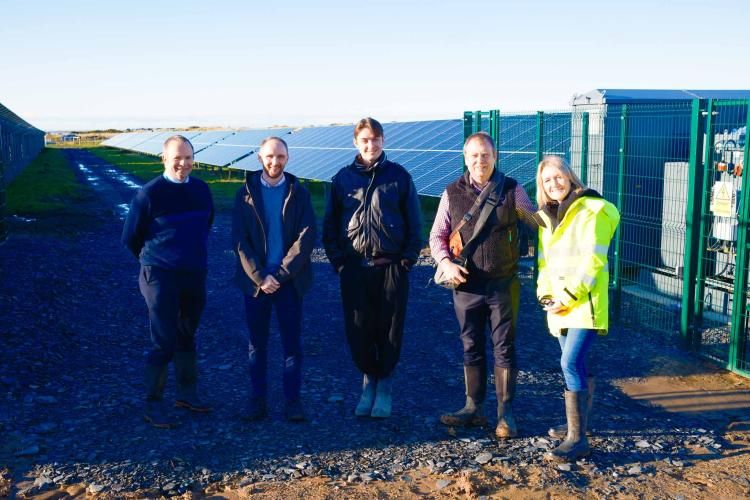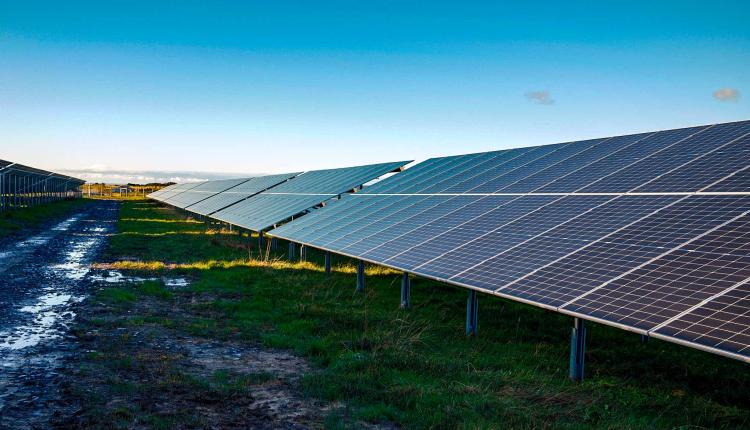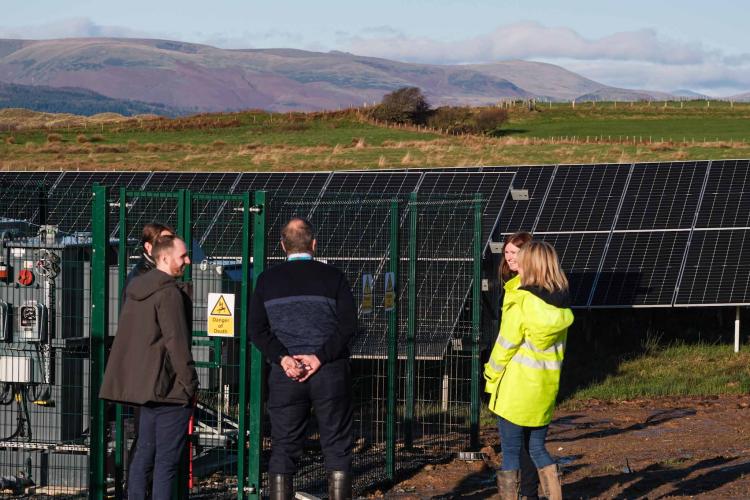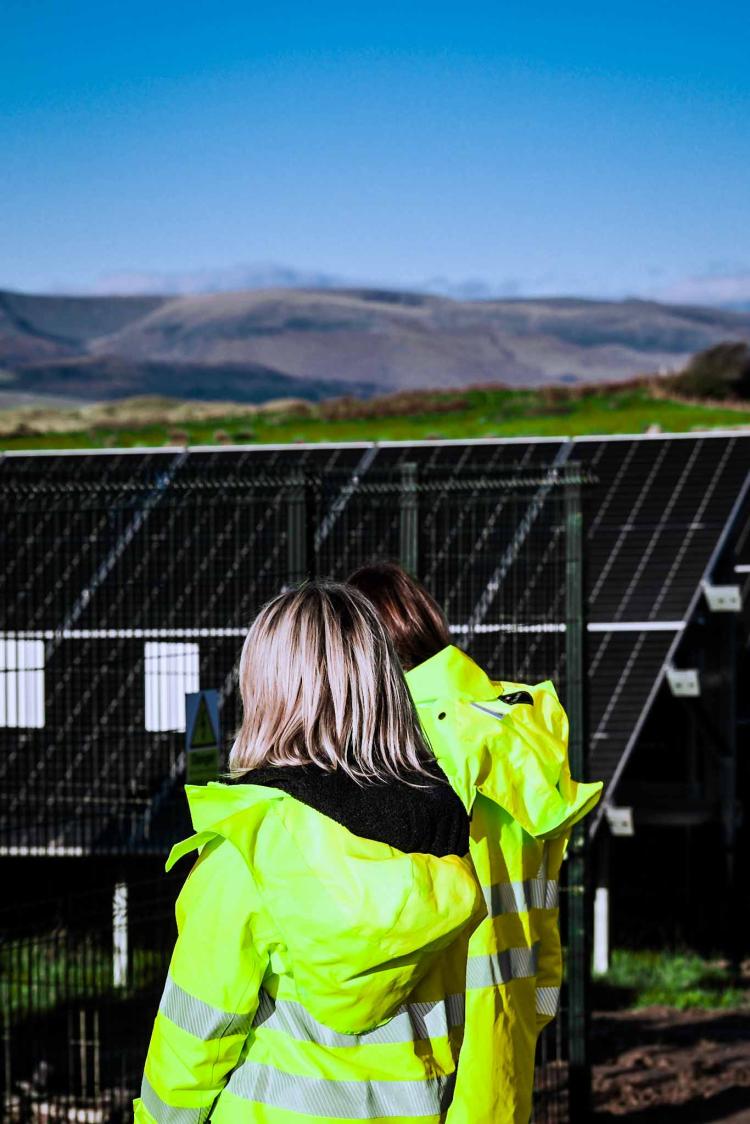Passion is the driver for council as it steps closer to its net zero goals
Westmorland and Furness Council
Our Low Carbon Skills Fund team look challenges in the face at Westmorland and Furness
There’s no time to waste for one of the UK’s most beautiful counties as it accelerates its net zero ambition.
Westmorland and Furness Council is committed to ensuring that the council is carbon net zero as soon as possible and that the area it serves is carbon net zero by 2037.
It is one of the councils across the UK that is measuring not only direct emissions but also indirect emissions for the whole council. Council bosses have made climate change a high priority.
The council is now a step closer to achieving its goal, thanks to funding under the Low Carbon Skills Fund.
The fund, which is delivered by our teams at Salix, helps organisations produce a robust heat decarbonisation plan which includes various feasibility studies.
Westmorland and Furness Council was awarded £367,644.46 under Phase 5 of the latest round of the Low Carbon Skills Fund.
Our team members, programme manager Christopher Masters and client support officer Milo Challiner recently visited the breathtaking countryside of Cumbria to see for themselves how the new plans will take shape.

Pictured from left; Mike Crowther, Christopher Masters, Milo Challiner, Neil Solender and Julie Wynne.
Photo credit: Neil Solender
They met the council project programme manager Neil Solender who gave them a tour of some of the sites which will be impacted by the funding boost.
The team was also joined by programme managers Alison Coward and Julie Wynne and Mike Crowther, senior manager of capital programmes.
Milo said: “It’s a beautiful county and so easy to see why everyone here is so passionate about getting this all done.
“The project covers 69 buildings, and each one is unique with its own specific challenges. We have been able to see for ourselves the challenge the council face in addressing its carbon footprint.”
The heat decarbonisation plan underpins the core council value to be ‘ecologically aware’.

During the visit, our team was able to look at other energy efficiency initiatives including solar being explored by the council
Photo credit: Neil Solender
The buildings impacted include council-maintained (community, voluntary controlled and foundation) schools and the desktop assessment will outline at a high level the current energy use and carbon emissions.
Neil said: “The assessments of the buildings mean we can look at carbon emissions and complete full building audits to enable a better understanding of the current condition of each building and the heating system, allowing for the prioritisation of fabric upgrades, alongside proposals for energy reduction and renewable measures.
“We need to plan for the future, and it certainly gives us a more informed picture.”
For each school building site, the following activities will be carried out by the consultant.
- Building fabric surveys
- Mechanical and electrical surveys
- LED outline design
- Heat decarbonisation report
The heat decarbonisation report will include proposals for building fabric enhancements, building systems enhancements, budget cost assessment of the proposal, cost of proposed measures, cost of associated infrastructure upgrades, energy savings, carbon savings, payback assessment along with a recommendation’s summary.
During the day our team toured Pennington Church of England Primary School where they met the headteacher and saw some of the passion driving the change for the school and local community.
The team was also able to tour a solar farm at Sandscale Park in Barrow, which has just begun generating electricity. It is expected the site will bring about reductions in carbon for the council and save around 607 tonnes of carbon dioxide equivalent per annum.

Christopher Masters discussing green projects in Cumbria
Photo credit: Neil Solender
Milo added: “The solar farm is not a Low Carbon Skills Fund project however it was wonderful to share their passion and ambition in line with their ambitious targets of making Cumbria the first Net Zero carbon county in the UK by 2037.
“The headteacher at the school we visited was equally as passionate to improve the insulation at her school as it was an old Victorian building, and a lot of heat is lost. The school provided its heating from an oil boiler which is also not ideal.
“The plans will highlight all of these factors and set out a plan for a greener future if they can get the capital works agreed and completed.”
The Climate Action Plan for Westmorland and Furness Council is a five-year plan which is reviewed regularly and updated annually.
Climate change is the biggest challenge of our times and it’s positive to see the council, along with so many others that we work with, taking such action.
It has to be tackled by us all to make our world have a better climate future.

During our visit to Westmorland and Furness, our team was able to better understand the vision for the future at Cumbria
Photo credit: Neil Solender
Thank you to Westmorland and Furness Council for hosting the team and sharing your net zero vision.




